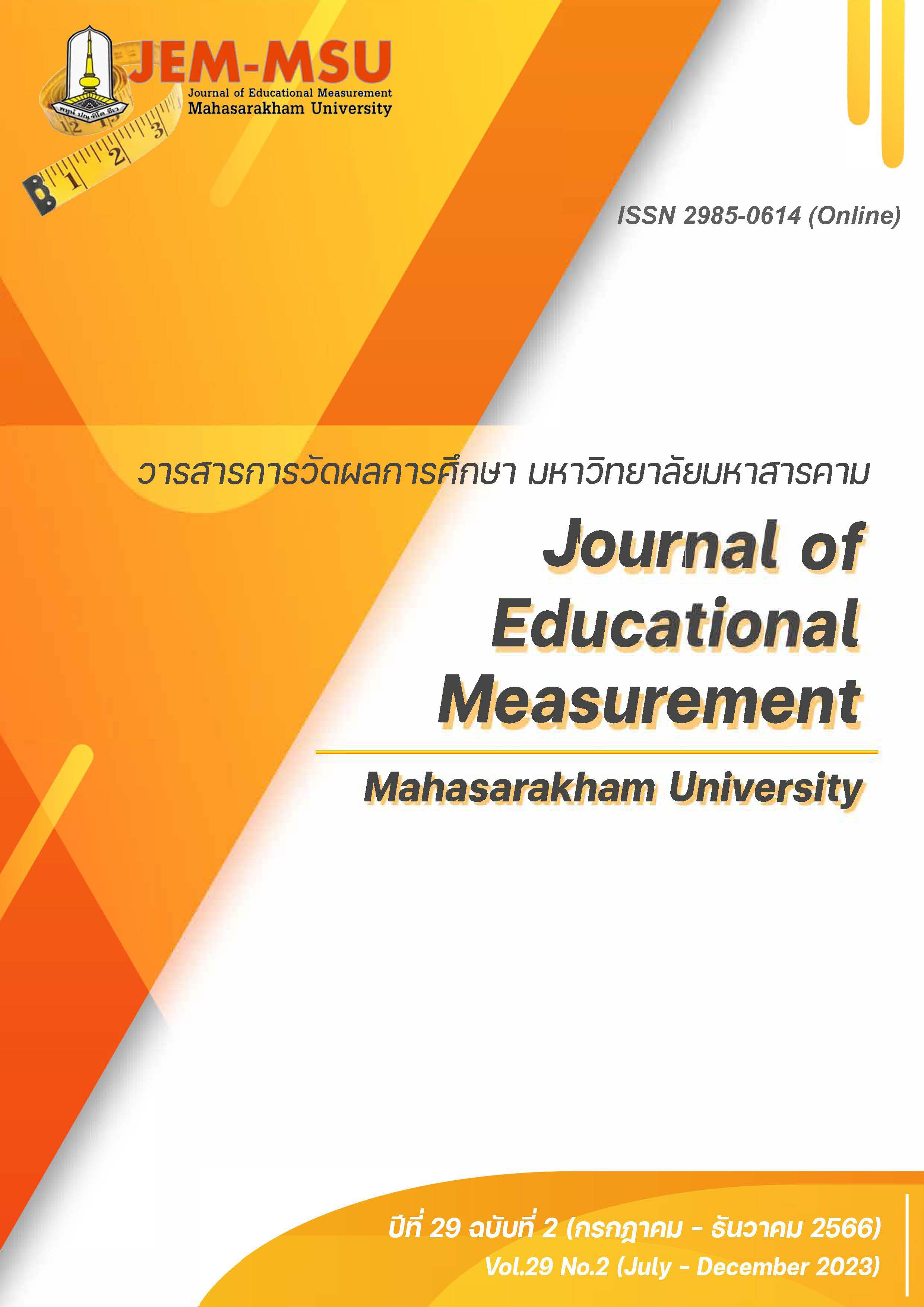Data analysis in Generalizability Theory: An Application of Online R Complier
Main Article Content
Abstract
Generalizability Theory, also known as G-Theory, is a theory used to analyze the reliability of measurement results in various measurement scenarios. It aims to assess the trustworthiness of measurement outcomes when using instruments to evaluate their reliability. The theory can determine the reliability of measurement results in two ways: the relative trustworthiness of scores for making comparative interpretations among individuals, and the absolute trustworthiness of scores by comparing them against standard criteria through G-Study and D-Study. Typically, the analysis is performed offline using specialized
software installed on a computer. Therefore, this article presents an online analysis approach using the Posit Cloud application, an online R compiler. It covers the basics of analysis commands and guidelines for reporting analysis results, which can be helpful for analyzing educational measurement and evaluation outcomes, assessing performance skills, or other related assessments.
Article Details

This work is licensed under a Creative Commons Attribution-NonCommercial-NoDerivatives 4.0 International License.
The content and information contained in the published article in the Journal of Educational Measurement Mahasarakham University represent the opinions and responsibilities of the authors directly. The editorial board of the journal is not necessarily in agreement with or responsible for any of the content.
The articles, data, content, images, etc. that have been published in the Journal of Educational Measurement Mahasarakham University are copyrighted by the journal. If any individual or organization wishes to reproduce or perform any actions involving the entirety or any part of the content, they must obtain written permission from the Journal of Educational Measurement Mahasarakham University.
References
Brennan, R.L. (1992). Generalizability Theory. Educational Measurement: Issues and Practice, 11, 27-34. https://doi.org/10.1111/j.1745-3992.1992.tb00260.x
Cronbach, L.J., Gleser, G.C., Nanda, H., & Rajaratnam, N. (1972). The dependability of behavioral measurements: Theory of generalizability for scores and profiles. John Wiley.
Huebner, A., & Lucht, M. (2019). Generalizability Theory in R. Practical Assessment, Research, and Evaluation, 24, 1-12. https://doi.org/10.7275/5065-gc10
Posit Cloud. (n.d.). Posit Cloud Guide. https://posit.cloud/learn/guide
Shavelson, E.L., & Webb, N.B. (1991). Generalizability Theory: A Primer. Sage Publications.
Chaimongkol, N., & Kanjanawasee, S. (2020). The application of R programming for
educational testing. Journal of Research Methodology, 33(1), 21-45. https://portal.edu.chula.ac.th/pub/jrm/index.php/jrm/article/view/648. (in Thai)
Kanjanawasee, S. (2020). Modern test theories (5th ed.). Chulalongkorn University Press.(in Thai)


